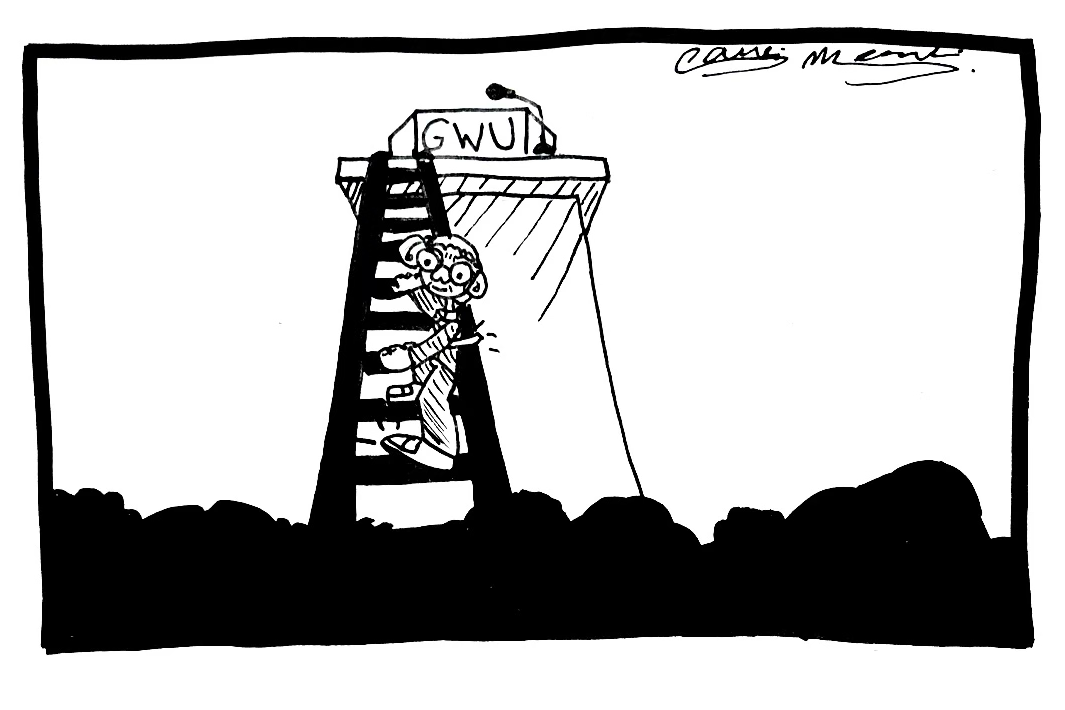With laws dating back to the 1800s, D.C.’s current criminal code makes a mockery of justice. A group of law professors ranked the code among the worst in the country in 2000. It isn’t just outdated or strange – it’s actively contributing to injustice and inequity in the District because of its unclear language, unfair sentencing practices and lack of definitions for offenses like simple assault. Mayor Muriel Bowser, D.C. citizens and the public officials responsible for deciding the fate of the city’s justice system should support efforts to modernize the city’s criminal code by defining criminal offenses, removing outdated language and reversing practices like the overuse of “simple assault” charges.
D.C. Council members, public defenders and activists agree that the criminal code is long overdue for an update – upon its creation in 1901, women didn’t have the right to vote in national elections, and Black people couldn’t meaningfully contribute to the legislative process. An overhaul of the code has been in the works since 2006, but the extensive nature of examining, reworking and approving the underpinning of the District’s criminal legal system means the process is still ongoing. Fully updating the criminal code’s outdated provisions and language will provide more fairness and justice in the District.
D.C.’s archaic criminal code could theoretically affect each of us, but it doesn’t. Though only 45.8 percent of the city’s residents identify as Black or African American, they make up 87.4 percent of male inmates and 79.6 percent of female inmates in D.C. jails. Members of Congress, including former slaveholders, crafted D.C.’s 1901 criminal code. As such, the beliefs and priorities of deeply bigoted white men seeped into the code itself. To have the D.C. criminal code perpetuate the racist history of the United States legal system would bode poorly for our attempt to move toward a less incarcerated, more just society.
The D.C. Council’s Committee on the Judiciary and Public Safety voted unanimously to approve the Revised Criminal Code Act of 2022 last Tuesday, but not without some objections. Bowser, whose signature will actually take the act into effect, and Metropolitan Police Department Chief Robert Contee III objected to two separate provisions that they argue would slow down proceedings in D.C. courts. One would allow for the expansion of jury trials to misdemeanors, and the other would expand the right of inmates to petition a judge to vacate those sentences. Contee and Bowser seem to prefer unfair trials over justice. The overhaul of the criminal code won’t even come into effect until 2025, and the expansion of jury trials would phase in slowly to combat Bowser’s and others’ fears about overwhelming judges.
Granted, there is a longstanding shortage of judges both in D.C. and across the nation who are already struggling to keep up with trials today. But the truth is that these judges would have a lighter workload if the city actually overhauled its criminal code and took tangible steps to stop crime, limit incarceration or to improve the circumstances of overworked employees and underfunded institutions. The fact that the president must nominate and the U.S. Senate must approve judges for the city’s Superior Court and Court of Appeals is causing a bottleneck in D.C.’s justice system. More judges have retired than joined the courts, and there are currently 14 vacancies in the Superior Court. Clearer definitions for a specific crime and sentencing guidelines would presumably improve the general state of justice in the District, thereby making the lives of these overworked officials easier.
Violent crime in the District rose in just the last year by 17 percent, with a steep increase in robberies behind the jump. With violence already such a major public safety issue in D.C., the updated criminal code wouldn’t ignore violent, criminal behavior – the Council’s bill keeps carjacking as a standalone offense and retains mandatory minimum sentences for first-degree murder. Instead, revising the code for the modern era will allow us to root out the prejudice and systematic disparities inherent in the code.
This measure has taken so many years that it would be foolish to let these fears and worries hold us back from enacting change at the last minute. As other states like New York eliminate cash bail for certain crimes and reform their criminal codes to avoid criminalizing people in poverty, updating D.C.’s criminal code would ensure justice in the city and set a standard for improving criminal codes and systems of justice across the United States.
D.C. should join states like New York, New Jersey, Colorado and Nevada who have already reformed and continue to reform their justice systems over the past two years to address their racist roots. The overhaul’s provisions, like the expansion of jury trials and furthering inmates’ ability to petition for vacating their charges, are critical to ensuring fairness, justice and safety in the District’s criminal legal system and promoting morality and equity across the United States.
Jessica Rich, a freshman majoring in political psychology, is an opinions writer.


